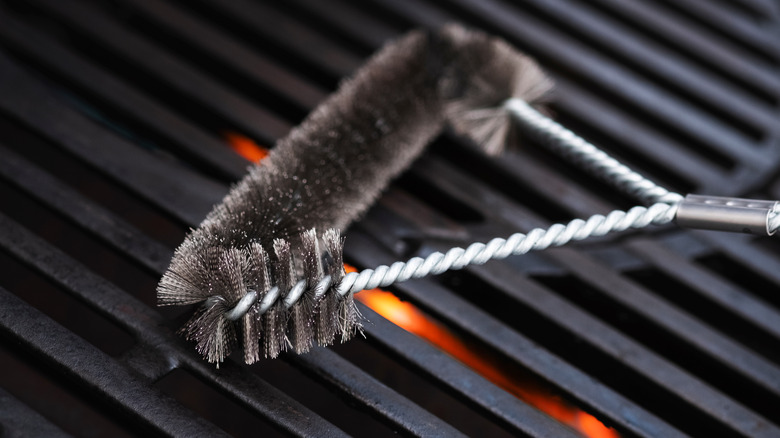Difference Between Steel and Iron Grill Grates: Which Is Best?
Written By James Morgan
When it comes to grilling, the choice of grill grates can significantly impact your cooking experience and the flavor of your food. For many barbecue enthusiasts, understanding the difference between steel and iron grill grates is crucial to making an informed decision. This article delves into the nuances of these materials, helping you choose the right grill grate for your next cookout.

Understanding the Basics: Steel vs. Iron
Both steel and iron have their own unique sets of characteristics that make them suitable for different grilling needs. Steel grill grates are often lauded for their durability and resistance to rust. Typically made from stainless steel, these grates are less likely to corrode over time, making them a popular choice for many grill masters. In contrast, iron grill grates, especially those made from cast iron, are known for their superior heat retention and ability to create impressive sear marks on meats.
For those who want to dive deeper into grill grates, this guide offers insights into selecting the best material for enhancing flavor.
The Pros and Cons of Steel Grill Grates
Steel grill grates, particularly those made from stainless steel, are renowned for their longevity. These grates are less prone to rust, which means they require less maintenance over time. Additionally, they are typically lighter than their iron counterparts, making them easier to handle and clean. For those who prioritize convenience, steel grates are often the go-to choice.
However, one potential downside of steel grates is their heat retention. While they heat up quickly, they may not retain heat as effectively as iron grates. This can affect the cooking process, especially when grilling thick cuts of meat that require consistent heat.
The Advantages and Drawbacks of Iron Grill Grates
Iron grill grates, especially cast iron, are celebrated for their excellent heat retention and distribution. This makes them ideal for achieving perfect sear marks and cooking meats evenly. Moreover, with proper seasoning, cast iron grates can develop a naturally non-stick surface, enhancing the flavor of your grilled dishes.
On the flip side, iron grates are heavier and more susceptible to rust if not properly maintained. Regular seasoning and cleaning are essential to prevent rust and extend the life of your iron grill grates. For tips on maintaining grill grates, this cleaning guide provides helpful advice.
Choosing the Right Grill Grate for Your Needs
Deciding between steel and iron grill grates depends largely on personal preferences and grilling habits. If you value ease of maintenance and durability, steel grates might be the better option. However, if you prioritize heat retention and flavor, iron grates could be the way to go.
It's also worth considering how often you grill and the types of food you cook. Frequent grillers who enjoy searing steaks may benefit more from iron grates, while those who grill occasionally might find steel grates more convenient.

Conclusion
Understanding the difference between steel and iron grill grates is key to enhancing your barbecue experience. Each material offers its own set of benefits and challenges, so consider your priorities and grilling style when making a choice. For more insights on grilling and choosing the right equipment, explore this article on grilling accessories.
FAQs about Steel and Iron Grill Grates
1. Which grill grates are easier to clean, steel or iron?
Steel grates, especially stainless steel, are generally easier to clean and require less maintenance than iron grates.
2. Can I use iron grates on a gas grill?
Yes, iron grates can be used on gas grills. Just ensure they are properly seasoned to prevent rust.
3. How often should I season cast iron grates?
It's recommended to season cast iron grates after each use to maintain their non-stick surface and prevent rust.



